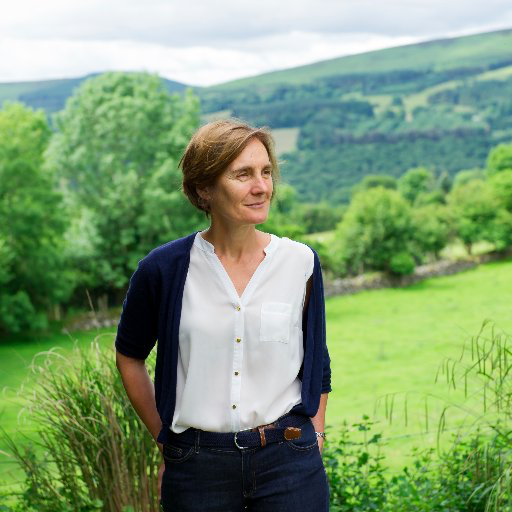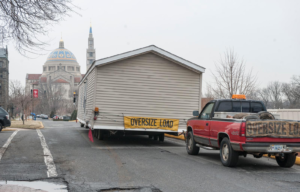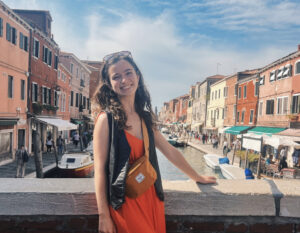Jane Clarke Brings the Spirit of Ireland to CUA

By: Chris Carey
Irish poet Jane Clarke revealed her strength through her vulnerabilities as she shared selections from her most recent collection of poems, When the Tree Falls, with students and faculty this past Wednesday.
Influences of William Butler Yates, Seamus Heaney, and Elizabeth Bishop flowed through her prose, mixing with her enduring love for her father and the nostalgia she has for the Irish land she calls home.
“He told me old stories as if he lived through them,” she read from her poem “The First Specimen” with a gleam in her eye and a longing in her voice for times that were gone.
Clarke spoke freely of the change she has seen across Ireland from her times as a child on a farm, to her days at Trinity College in Dublin, and to today as technology and modern ways sweep through her homeland, altering forever the traditions and customs that formed her as a poet and a person.
“When I began writing I had no idea that place would feature so strongly but I found that the physical details of the farm in the midlands where I grew up both carried and expressed the emotions in my poems,” said Clarke. “Many of my poems are rooted in the land and in the central relationships of my life.”
Drawing inspiration from nature, Clarke likened her poetry to the laying of a dry stone wall, spattering her verses with words of a time long past.
“I’ll use old stones, dappled with lichen and moss,” read Clarke, nodding subtly to the craft of generations before as she perfects her craft of influencing minds today.
“This was my first introduction to Jane Clarke’s work and it was absolutely beautiful,” said freshman and Irish student Kelly Forrester. “She’s very talented and I enjoyed hearing the inspiration behind each of her poems.”
Students were not the only ones to experience Ireland through Clarke’s lens; representatives from Solas Nua, an organization based in Washington and dedicated to the preservation of Irish art and culture, partook in her exposition as well. Clarke spoke on the importance of this relationship with the United States that Solas Nua and other groups foster.
“Over the past 60 years Ireland has transformed from a conservative, inward-looking post-colonial state to a more open, mature and compassionate country with a commitment to human rights at home and abroad,” said Clarke. “The arts and international cultural exchange have been central to this hard-won transformation.”
Additionally, faculty members with the Irish Studies Department engaged with Clarke. Dr. Áine Ní Chonghaile, visiting professor from Ireland, connected with Clarke on their shared background growing up as individualistic women in a time in Ireland where female individualism was seen as a threat, not a gift to be fostered. Commenting on the new age of Irish poetry, Ní Chonghaile made her feelings known.
“You know, I never liked the term ‘female poet’,” she commented. “I always preferred the term poet who is a woman.”
Dr. Ní Chonghaile’s comments highlight the more deeply felt issues facing women who write in Ireland, as well as across the world. Clarke spoke of the feminism influenced traditionalism of her mother which pushed Clarke to strive for more in her life than her own mother could have ever imagined.
Clarke writes about the trade she loves and the mother who fosters that love, finishing her poem “Hers” with a simple phrase that says so much:
“A woman must have something of her own.”
Jane Clarke has found that something, and the Catholic University community has benefited from it.







